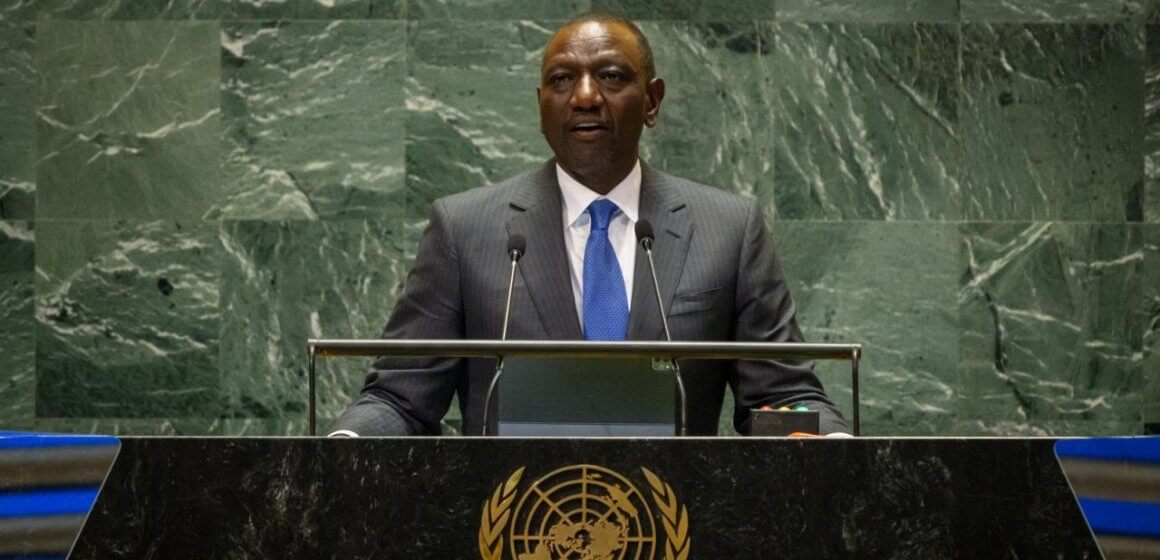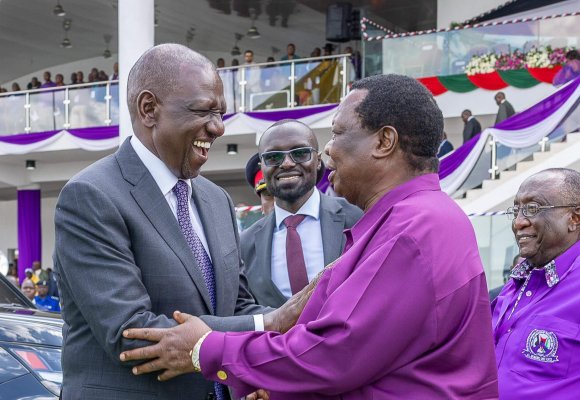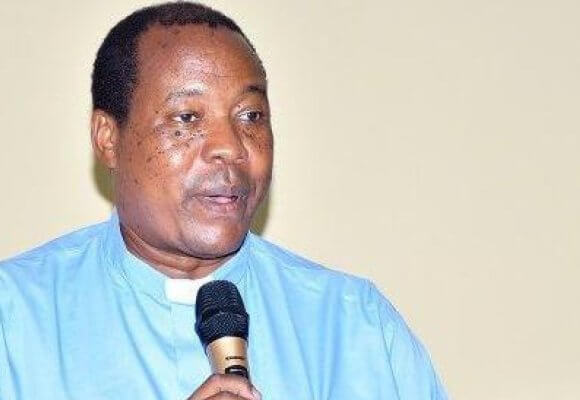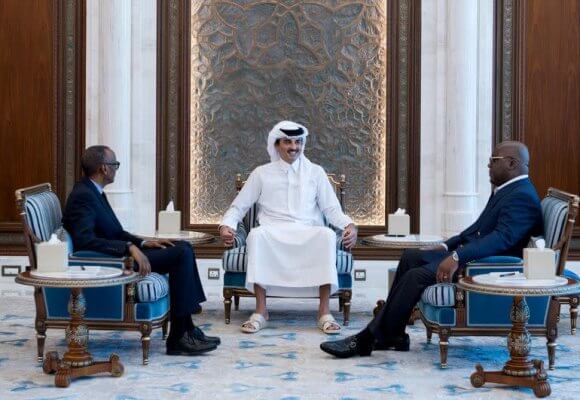|
LISTEN TO THIS THE AFRICANA VOICE ARTICLE NOW
Getting your Trinity Audio player ready...
|
Kenya has reaffirmed its commitment to the ongoing peace mission in Haiti, with President William Ruto announcing on Thursday that all 2,500 Kenyan police officers would be deployed to the Caribbean nation by January 2025.
Speaking at the United Nations General Assembly (UNGA) in New York, President Ruto highlighted Kenya’s leadership role in restoring order in Haiti, a country long plagued by instability and lawlessness, particularly following the 2021 assassination of its president, Jovenel Moïse.
Kenya, which initially pledged to send 1,000 officers, had already deployed 382 personnel to Haiti, tasked with securing key infrastructure and reclaiming gang-controlled areas. President Ruto stressed the significant progress made by the Kenyan officers, crediting their efforts in stabilizing some of the most critical regions.
“I had the opportunity to visit Haiti recently and witnessed first-hand the extraordinary work our officers are doing. They have not only secured critical infrastructure but are also working closely with local communities to restore peace,” said Ruto. He emphasized that the additional 600 officers would be deployed early next year, making up the full contingent of officers committed to the mission.
The peacekeeping mission in Haiti, which is backed by the United Nations, comes at a critical time for the Caribbean nation. Since the assassination of President Moïse, Haiti has been engulfed in violence, with armed gangs taking control of key territories, including vital infrastructure such as seaports and roads. Gangs have terrorized communities, causing widespread displacement and hunger. According to the World Food Programme, food prices in Haiti surged by 42% in July 2023 compared to the previous year, with over 700,000 people internally displaced.
Kenya stepped up to lead the peace initiative in 2024 after an appeal from the Haitian government, which had been struggling to contain the violence under the leadership of Prime Minister Ariel Henry. Henry, who took office after President Moïse’s assassination, faced immense pressure as armed gangs seized control of the country. In March 2024, during a visit to Kenya, Henry formally requested Kenya’s support, an agreement that marked a turning point in the international response to Haiti’s crisis. Soon after, Haiti saw the resignation of Henry and the establishment of a Transitional Presidential Council, tasked with leading the country to the next general elections in February 2026.
President Ruto expressed gratitude for the international backing the mission had received, particularly from the United States and Canada. Both countries have provided critical financial and logistical support, enabling the deployment of the Multinational Security Support (MSS) unit, which Kenya spearheads.
“We owe a debt of gratitude to the United States, Canada, and other member states for their unwavering support. Without their contributions, the progress we’ve seen in Haiti would not have been possible,” Ruto stated. However, he was quick to acknowledge that the mission still faces significant challenges, including insufficient funding and equipment. He called on UN member states to fulfill their pledges, warning that the situation in Haiti remains dire.
“Haiti’s security challenges are immense, and while we’ve made strides, much remains to be done. I urge the international community to stand in solidarity with the people of Haiti by providing the necessary resources,” Ruto added, appealing for more contributions to the UN Trust Fund or directly to MSS-contributing nations.
Haiti’s struggles with violence and instability have deepened over the years. Armed gangs, many equipped with weapons smuggled from the United States, have consolidated their hold on much of the capital, Port-au-Prince, and its surrounding areas. Just this week, land access to a major supply port in Port-au-Prince was cut off after armed gangs launched fresh attacks. According to the operator, Caribbean Port Services (CPS), land-based traffic would be suspended for several days as the Haitian army and police worked to secure the area.
The deteriorating security situation has also affected international aid, with ships being fired upon as they attempt to dock, and two Filipino crew members were kidnapped earlier this week. Despite the partial deployment of a UN-backed security force, Haitian leaders warned that the country’s worsening security situation could escalate further if immediate action is not taken.
Speaking at the UNGA, the president of Haiti’s Transitional Council, Edgard Leblanc Fils, echoed Ruto’s concerns, calling for the expansion of the Kenyan-led mission into a full-scale peacekeeping operation. This, he argued, would ensure a more consistent flow of funds, troops, and equipment from UN member states.
“Haiti’s situation is not just a humanitarian crisis; it’s a threat to the stability of our nation and the region,” Leblanc told the assembly, adding that the gangs’ control over most of the capital has left over half a million people displaced.











LEAVE A COMMENT
You must be logged in to post a comment.